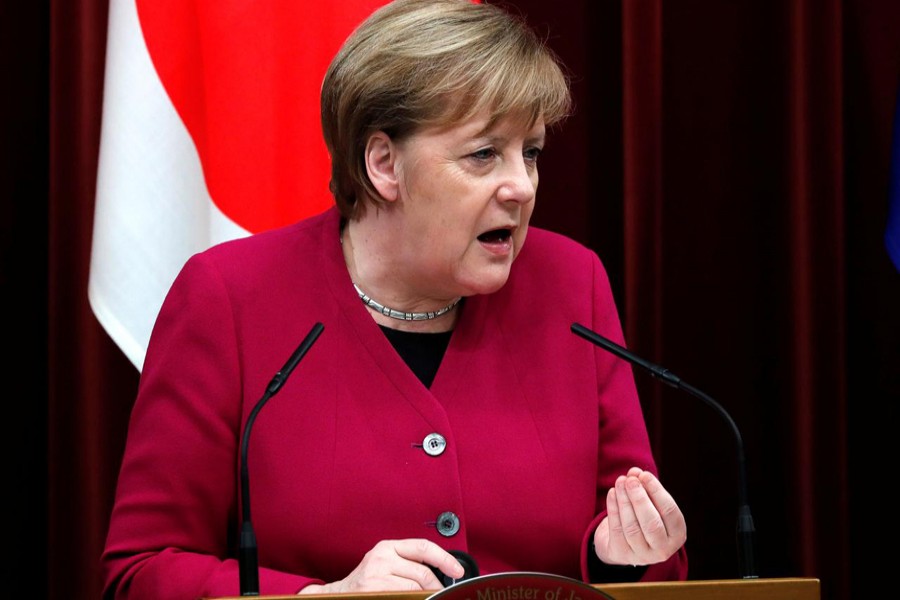German Chancellor Angela Merkel on Monday offered a way to break the deadlock over the United Kingdom’s exit from the European Union, calling for a “creative” compromise to allay concerns over the future of Irish border arrangements.
The United Kingdom is due under British and European law to leave the EU in just 53 days yet Prime Minister Theresa May wants last-minute changes to a divorce deal agreed with the EU last November to win over lawmakers in the British parliament.
May is seeking legally binding changes to the deal to replace the Northern Irish backstop, an insurance policy that aims to prevent the reintroduction of a hard border between EU-member Ireland and the British province of Northern Ireland.
While Merkel said she did not want the so-called Withdrawal Agreement renegotiated, she added that difficult questions could be resolved with creativity, the strongest hint to date that the EU’s most powerful leader could be prepared to compromise.
“There are definitely options for preserving the integrity of the single market even when Northern Ireland isn’t part of it because it is part of Britain while at the same time meeting the desire to have, if possible, no border controls,” Merkel said.
“To solve this point you have to be creative and listen to each other, and such discussions can and must be conducted,” Merkel said at a news conference with Japanese Prime Minister Shinzo Abe in Tokyo.
Merkel said the Irish backstop issue could be solved as part of a discussion over a separate agreement on the future relationship between the European Union and the United Kingdom, offering May a potential way out of the deadlock.
Merkel’s stance on Brexit is driven by an eagerness to preserve the integrity of the EU and its internal market, which are crucial to Germany’s post-war identity and prosperity, while also keeping Britain close to the bloc even after it leaves.
Keen to avoid the economic disruption a no-deal Brexit would bring to Germany’s economy, which slowed sharply last year, Merkel also values Britain as a like-minded partner and wants to keep its security expertise close at hand.
“We can still use the time to perhaps reach an agreement if everyone shows good will,” Merkel said.
LAST-MINUTE DEAL?
Britain’s labyrinthine crisis over EU membership is approaching its finale with an array of options including no-deal Brexit, a last-minute deal, a snap election or a delay.
May said she would seek a pragmatic solution when she tries to reopen talks with Brussels though Brexit-supporting lawmakers in her Conservative Party have warned they will vote against her deal unless there are substantial changes.
In Brussels, according to Reuters news agency, a group of British lawmakers met the head of the EU civil service and said Martin Selmayr appeared to indicate that the EU might bind itself to new legal conditions.
While European Commission Secretary General Selmayr, the long-time lieutenant of President Jean-Claude Juncker, had reiterated the EU line that it would not reopen the withdrawal agreement, Labour lawmaker Hilary Benn told reporters: “I got the impression that they might be prepared to consider some additional statement or legal protocol.”
But Selmayr was quick to fire back on Twitter: “On the EU side, nobody is considering this.”
The German EU official said the lawmakers gave “inconclusive” answers when he asked whether any EU assurances could help May win support for her deal.
Selmayr has been in charge of the bloc’s preparations for the event of Britain failing to agree on an orderly withdrawal and his role in meeting the lawmakers was seen by some British commentators as a sign of a harder line from Brussels than that from Brexit negotiator Michel Barnier, a former French minister.


